Virtual reality (VR) has emerged as a powerful tool for personal transformation and growth. With the ability to create immersive experiences that simulate real-life situations, VR has the potential to reshape our perceptions and behaviors in profound ways. By leveraging the power of technology, VR provides a safe and controlled environment for individuals to confront their fears, develop new skills and perspectives, and overcome personal limitations.
Definition of Virtual Reality
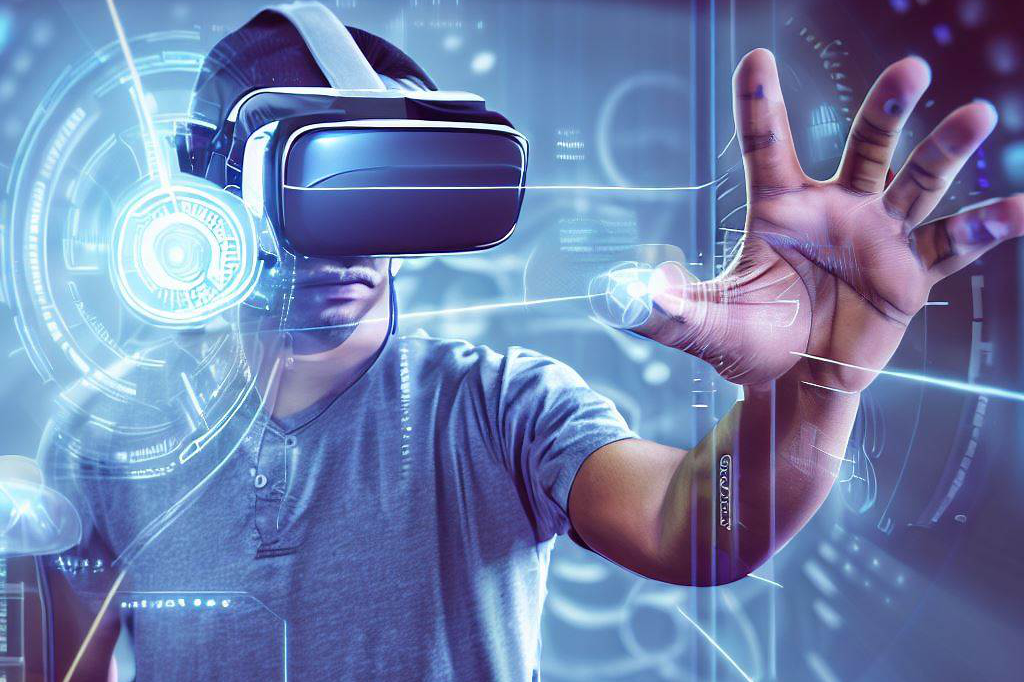
Virtual Reality (VR) refers to a computer-generated simulation of a three-dimensional environment that can be experienced through sensory stimuli such as sight, sound, and sometimes touch. It utilizes specialized equipment like headsets or gloves to allow users to interact with virtual objects or people within that space in a lifelike manner. VR creates a sense of presence within this virtual world, immersing users through visual, auditory, and haptic feedback, effectively transporting them from their physical realm to an alternate reality. This advanced technology offers users the ability to experience new things without leaving their immediate surroundings.
Brief History of VR and Its Evolution

The concept of immersive experiences dates back over 100 years when panoramic paintings were used to create a sense of being immersed in another place or time. The modern era of VR began with Ivan Sutherland’s ‘The Sword of Damocles’ experiment in 1968, which involved creating an immersive environment using a head-mounted display linked to a computer system. However, it wasn’t until the early 1990s that affordable computing components allowed for consumer-level access to virtual reality technology.
With advancements in computing power, graphics rendering capabilities, and wearable devices such as Oculus Rift and HTC Vive headsets designed specifically for gaming purposes; virtual reality has come leaps ahead since its early beginnings. Today’s virtual reality is more sophisticated than ever before, with fully-realised worlds built from scratch as well as those based on real-life locations captured using photogrammetry techniques.
The Science Behind Virtual Reality
Perception, the Brain, and VR
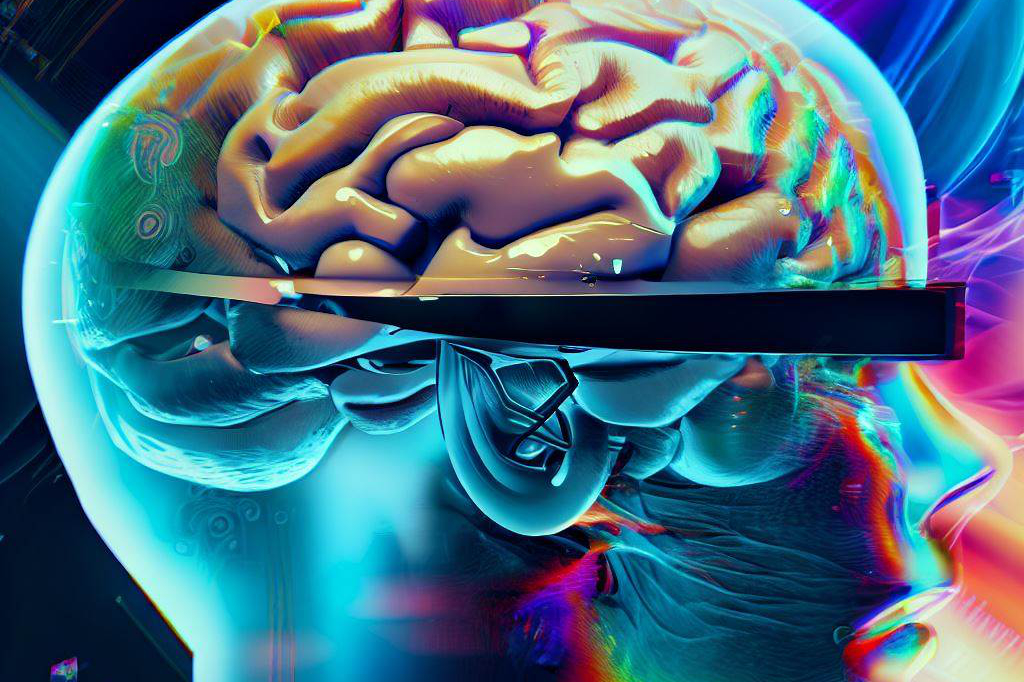
Over the years, researchers have uncovered how virtual reality affects our perception of reality and the way our brains process information.
The sense of presence that VR creates can be so powerful that it can even trigger physical reactions and emotional reactions. For example, a user might experience fear or anxiety in response to virtual stimuli.
The brain’s processing system works by interpreting signals from our senses to create images of reality. When we use virtual reality, it disrupts this process by introducing new sensory inputs that are not part of the real world.
This can create a conflict between what we see in VR and what we know to be true outside of it. By manipulating this sensory information through VR simulations, researchers aim to trigger certain emotions or behaviors in users.
The Role of Immersion in VR Experiences
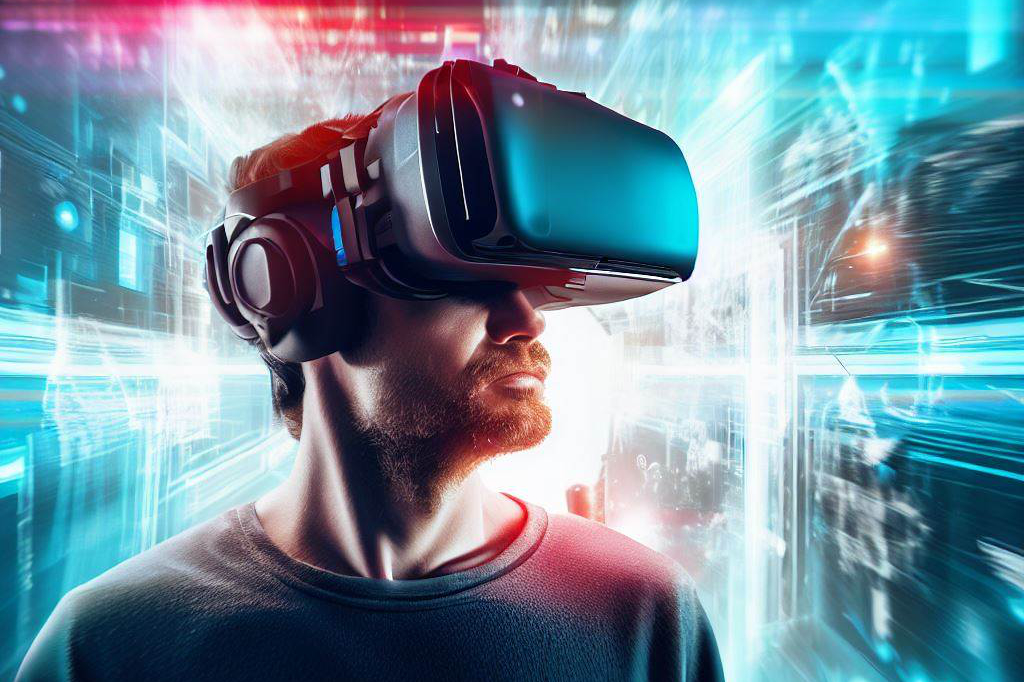
The sense of immersion is an essential aspect of virtual reality experiences. Immersion refers to the feeling that you are fully present in a computer-generated environment. To achieve this feeling, developers must create highly realistic environments with detailed visual and auditory cues that mimic those found in real life.
One way they do this is through advanced motion tracking technology that allows users to interact with objects and move around freely within the virtual environment. This level of immersion allows for greater engagement with simulated events and characters, which boosts the potential for personal transformation.
Neuroscience Research on Potential Personal Transformations Through VR
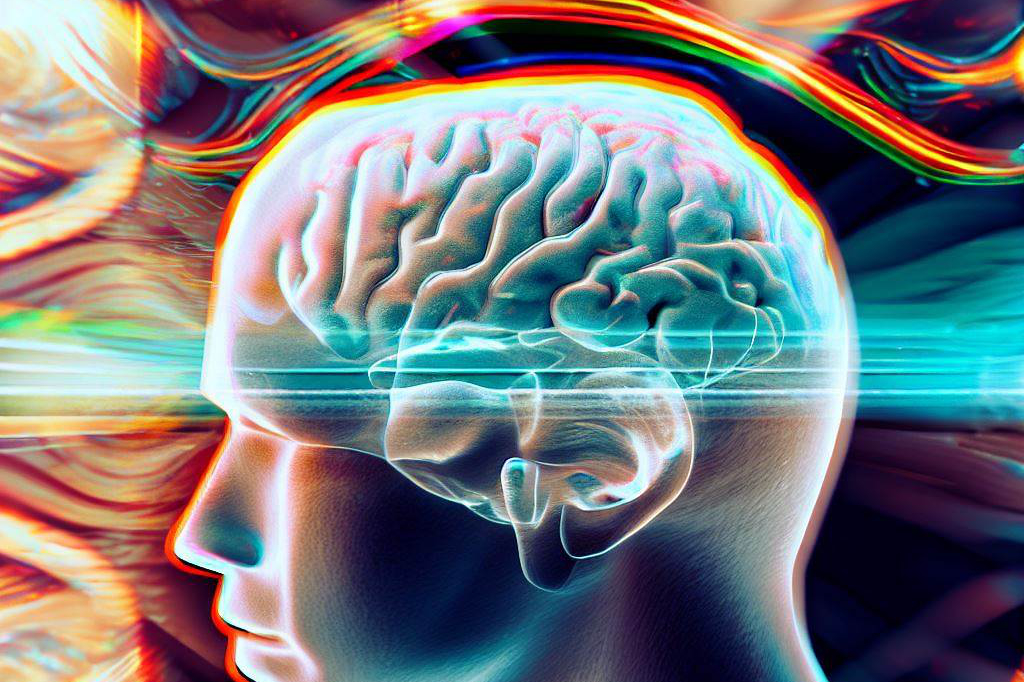
Studies show that virtual reality has significant potential for personal transformation through exposure therapy, cognitive-behavioral therapy (CBT), mindfulness practices, and other behavioral interventions. For instance, recent research shows how exposure therapy involving Virtual Reality may help treat Post Traumatic Stress Disorder (PTSD).
A 2019 study found that exposure therapy in VR significantly reduced PTSD symptoms, providing an immersive environment that allowed the patients to confront their traumatic memories, aiding in their recovery. There is also evidence that virtual reality can help with empathy training.
Another study conducted by researchers at Stanford University showed that participants who experienced being homeless in VR were more likely to have positive attitudes towards the homeless and were more willing to help than those who didn’t experience the simulation. This demonstrates how VR can be used as an effective tool for creating empathy and understanding for marginalized communities.
Overall, the science behind virtual reality reveals that it has significant potential for personal transformation. The immersive environments created by VR technology allow us to engage in simulations that we may not otherwise have access to, leading to meaningful transformations and improvements in our lives.
Applications of Virtual Reality in Personal Transformation
Overcoming Phobias and Fears through Exposure Therapy
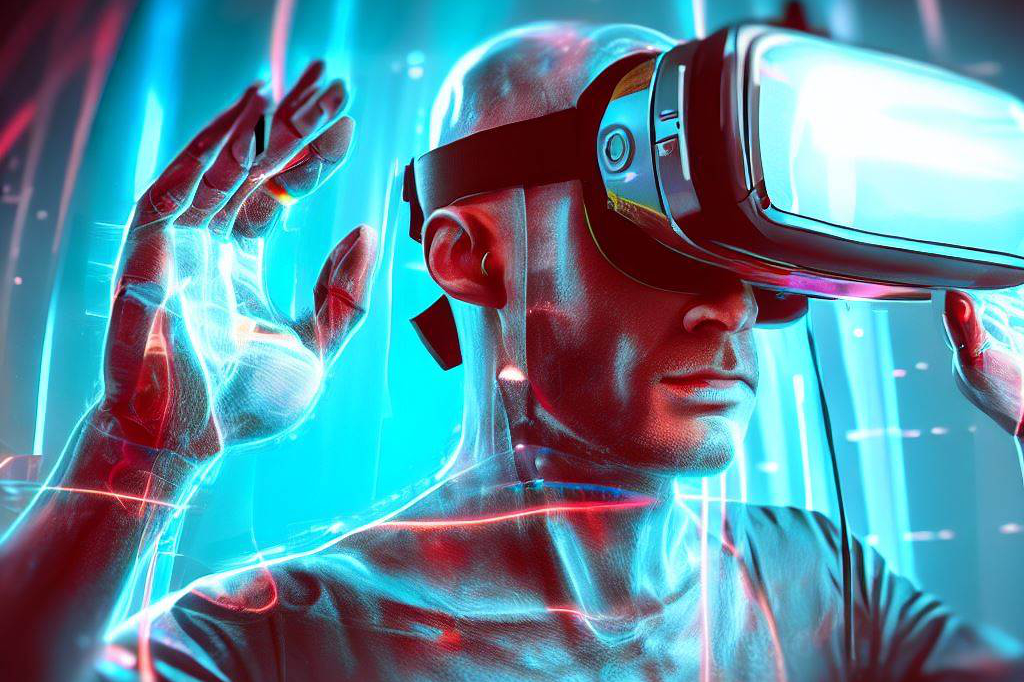
One significant application of virtual reality technology in personal transformation is overcoming phobias and fears through exposure therapy. Exposure therapy is a form of cognitive-behavioral therapy that involves gradually exposing individuals to their fears or phobias to help them manage their anxiety. VR technology allows for immersive simulations that can replicate the feared situations within a controlled environment, giving patients the opportunity to confront their fears without any actual danger.
For example, individuals who have a fear of heights can undergo virtual reality exposure therapy by experiencing different levels of height simulations until they are able to manage their anxiety effectively. This approach has proven effective in treating specific phobias such as fear of flying, public speaking, and social anxiety.
Enhancing Empathy and Perspective-taking through VR Simulations
Virtual reality simulations can also be used to enhance empathy and perspective-taking skills, particularly for individuals who struggle with understanding others’ perspectives or empathizing with those who are different from themselves. For instance, medical students can undergo VR training simulations that depict patients’ experiences living with various conditions such as dementia or schizophrenia.
This training helps students understand the patient’s perspective better while providing them with valuable insights into how the individual’s condition affects their daily lives. Additionally, immersive VR experiences allow users to physically embody different identities, thus helping them develop empathy by experiencing what it feels like to be someone else, such as an elderly person or an individual with physical disabilities.
Developing Mindfulness and Emotional Regulation through Guided Meditation in VR
Mental health practitioners increasingly use meditation strategies aimed at developing mindfulness and emotional regulation skills among clients struggling with mental health issues. Virtual reality technology provides an ideal platform for guided meditations that promote mindfulness by creating immersive environments conducive to relaxation and introspection.
For instance, VR meditation sessions can be customized to replicate serene natural settings, such as a beach or forest. These environments help individuals enter a state of deep relaxation by removing distractions and enabling them to focus on their breath and other mindfulness techniques.
Additionally, VR-guided meditations can be tailored to specific mental health concerns, such as anxiety or depression. Users can participate in guided sessions that incorporate techniques such as visualization or positive affirmations to manage their symptoms better.
Case Studies: Real-life Examples of Personal Transformation Through Virtual Reality
PTSD treatment using virtual reality exposure therapy
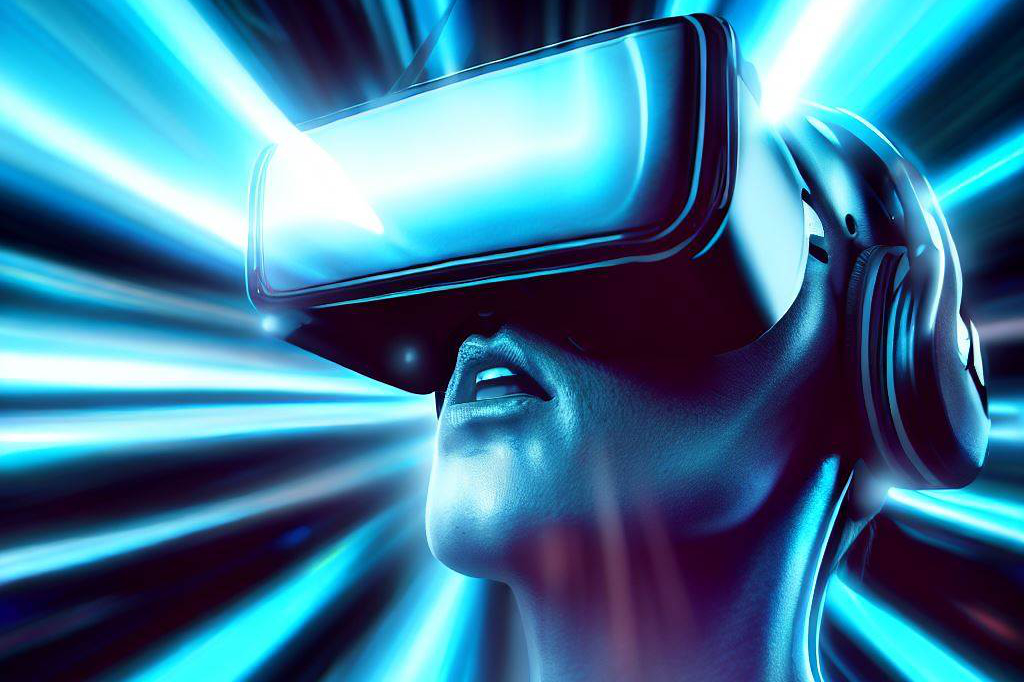
According to the National Center for PTSD (USA), approximately 7-8% of the population will experience PTSD at some point in their lives. Traditional exposure therapy can be difficult and overwhelming for patients with PTSD, as it requires them to revisit traumatic events and confront intense emotions. However, virtual reality exposure therapy (VRET) provides a safe and controlled environment for patients to confront their fears and anxieties.
In VRET, patients wear a VR headset that places them in a simulated environment that closely resembles the trauma they experienced. They can then gradually acclimate themselves to the scenario while receiving cognitive-behavioral therapy from a therapist.
Research has shown that VRET is an effective treatment for PTSD, with significant reductions in symptoms reported by participants. By re-experiencing traumatic events in a controlled setting through VR, individuals can learn how to cope with stressful situations without being overwhelmed by emotions.
Empathy training for medical professionals using VR simulations
Empathy is a crucial component of quality healthcare, but it can be challenging for medical professionals when dealing with patients who have different backgrounds or life experiences. However, research has shown that VR simulations can help physicians develop empathy skills by allowing them to experience different perspectives firsthand. Through immersive experiences, healthcare providers can better understand what it’s like to go through certain medical procedures or diagnoses from their patients’ perspectives.
For example, doctors could put on a VR headset and experience what it’s like to have sight or hearing impairments or understand how it feels to have anxiety during an MRI scan. This type of training has been found effective in enhancing empathy among medical students and improving communication between doctors and patients.
Mindfulness meditation practice using guided VR experiences
Mindfulness meditation has been proven beneficial for mental health, but many people find it challenging to achieve a meditative state in distracting environments. Virtual reality can provide a solution to this problem by creating a peaceful and immersive environment that facilitates a meditative experience. In guided VR meditation experiences, users wear a headset that transports them to scenic locations and calming environments.
These experiences are designed to aid in relaxation and help individuals develop mindfulness skills. By being fully immersed in the environment, individuals can achieve deeper levels of focus and concentration, which enhances the effectiveness of the meditation practice.
Research suggests that VR-guided meditation experiences can improve emotional regulation, increase self-awareness, and reduce stress levels. Moreover, virtual reality provides an accessible alternative to traditional meditation practices for people who may struggle with physical limitations or are unable to access peaceful environments.
Future Implications for Personal Transformation Through Virtual Reality
The Potential for Widespread Adoption of VR Technology in Personal Growth and Development
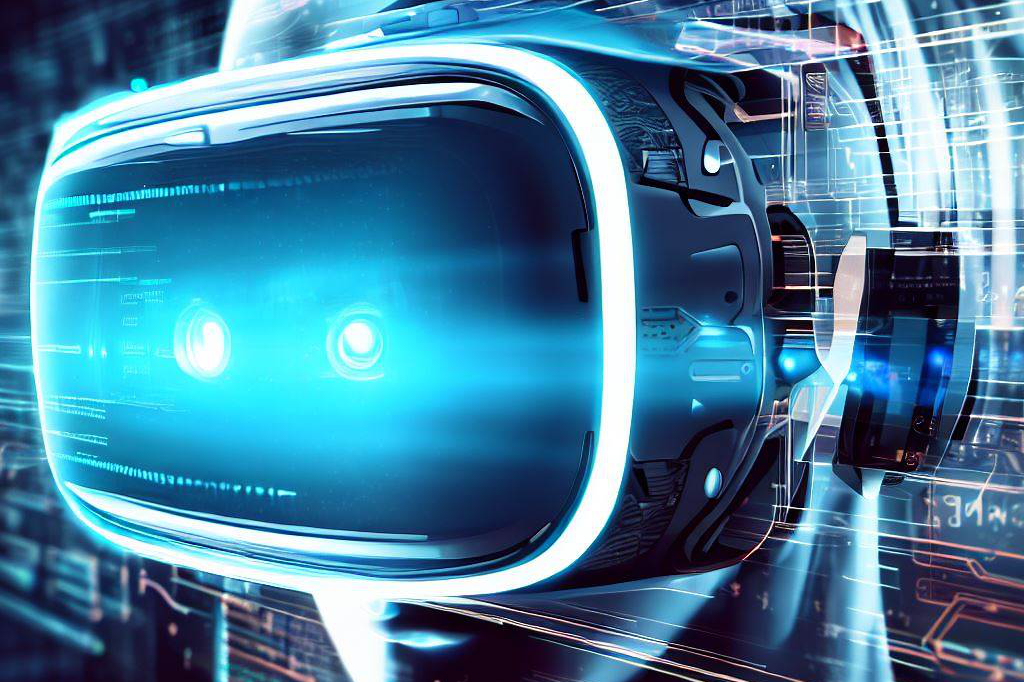
Virtual reality has the potential to transform the way people approach personal growth and development in the future. As advancements continue to be made in VR technology, it is likely that more people will have access to this immersive technology. This means that individuals who may not have had access to traditional forms of therapy or personal development programs can now benefit from VR experiences.
In addition, virtual reality has created new opportunities for therapeutic interventions that were previously unavailable. Exposure therapy, mindfulness meditation, and empathy training are just a few examples of how VR can be used to help individuals overcome mental health challenges and improve their overall well-being.
As more research is conducted on the efficacy of these types of interventions using VR technology, we may see an increase in the number of mental health professionals using these tools as part of their treatment plans. Additionally, schools and universities may incorporate VR experiences into their curriculum as a way to enhance students’ personal growth and development.
Ethical Considerations Surrounding the Use of Immersive Technologies for Personal Transformation
While virtual reality offers many potential benefits for personal transformation, there are also ethical considerations that must be taken into account. One concern is whether or not individuals should be required to provide informed consent before participating in a VR experience.
Additionally, there are concerns about data privacy and security when it comes to collecting sensitive information from users during immersive experiences. It is important that companies developing these technologies prioritize user safety while also ensuring they are transparent about how data is collected and used.
Another ethical consideration is accessibility – not everyone has equal access to virtual reality technology or experiences due to cost or physical disabilities. Companies must work towards making these technologies more accessible and affordable so that they do not become exclusive tools only available to those who can afford them.
As virtual reality continues to evolve and become more integrated into our daily lives, it is important that we think critically about the ethical implications of using these technologies for personal transformation. It is only through careful consideration and responsible development that we can ensure VR experiences are used in a way that benefits society as a whole.
As we have seen, virtual reality has the potential to transform the way individuals approach personal growth and development. From exposure therapy to mindfulness meditation, VR experiences offer unique opportunities for personal transformation that were not previously available.
However, there are also ethical considerations that must be taken into account when using immersive technologies for personal transformation. As VR continues to evolve and become more widespread, it is important that developers prioritize user safety and accessibility while also ensuring they are transparent about data collection practices.
Ultimately, it is up to mental health professionals, educators, and society as a whole to work towards the responsible use of virtual reality technology in promoting personal growth and development. Through careful consideration of its potential benefits and risks, we can harness the power of VR experiences to promote positive change in individuals’ lives.
The Potential Impact That Virtual Reality Can Have on Transforming Individuals’ Lives
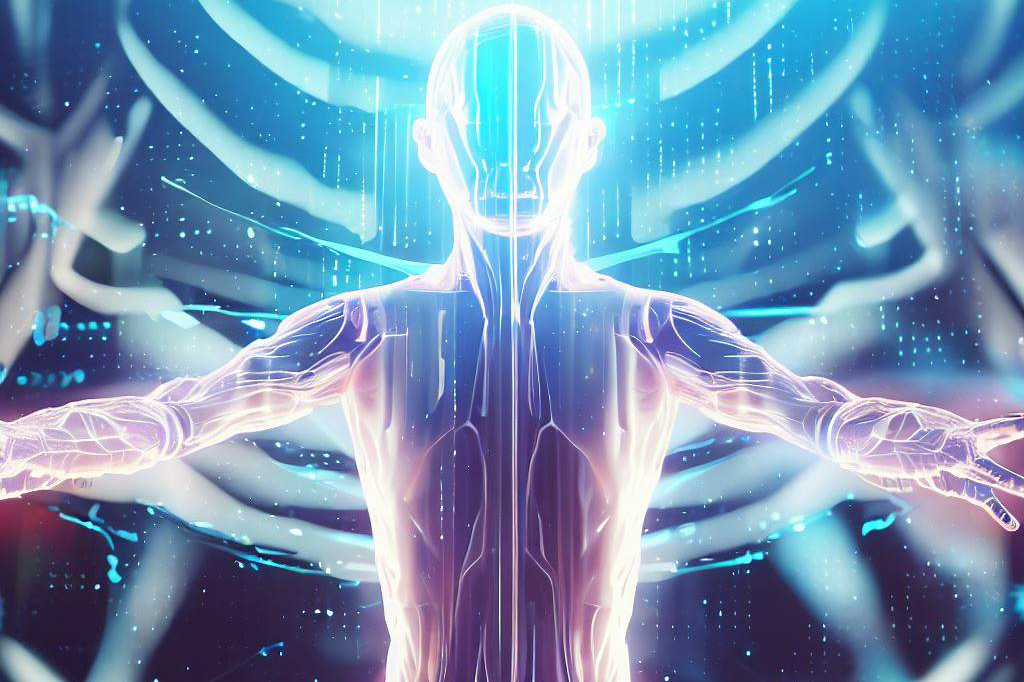
Virtual reality has immense potential to help individuals transform their lives by improving their perceptions and behaviors. Through immersive experiences, individuals can confront their fears, develop empathy and perspective-taking skills, and cultivate mindfulness practices in a safe environment. This technology offers people a unique opportunity to step outside their comfort zone without any real-world consequences.
Furthermore, with further advances in virtual reality technology, we may one day be able to create even more sophisticated VR experiences that cater to our individual needs and preferences. Personalized virtual environments could be used to provide tailored coaching and guidance for people who want to achieve specific goals or overcome particular challenges.
Final Thoughts
As with any new technology, there are ethical considerations that must be taken into account when using virtual reality for personal transformation purposes. However, when used responsibly and appropriately by trained professionals, virtual reality has the potential to help people improve their lives in ways never before possible.
It is clear that virtual reality has enormous potential as a tool for personal growth and development. As our understanding of this technology advances over time, we can only expect it to become even more effective at helping individuals transform themselves into better versions of themselves – both inside and out – thereby creating a world where people can thrive both personally and professionally like never before.
FAQs
Q: What is virtual reality (VR)?
A: Virtual Reality (VR) refers to a computer-generated simulation of a three-dimensional environment that can be experienced through sensory stimuli such as sight, sound, and sometimes touch. It creates a sense of presence within a virtual world, immersing users through visual, auditory, and haptic feedback.
Q: How does virtual reality work?
A: Virtual reality works by utilizing specialized equipment like headsets or gloves to allow users to interact with virtual objects or people within a simulated space. The technology disrupts the brain’s processing system by introducing new sensory inputs that are not part of the real world, creating a conflict between what users see in VR and what they know to be true outside of it.
Q: What is the history of virtual reality?
A: The concept of immersive experiences dates back over 100 years, but the modern era of VR began in 1968 with Ivan Sutherland’s experiment, ‘The Sword of Damocles.’ Affordable computing components in the early 1990s made VR accessible to consumers. Since then, VR has evolved with advancements in computing power, graphics rendering capabilities, and wearable devices designed specifically for gaming purposes.
Q: How does virtual reality impact perception and the brain?
A: Virtual reality can create a powerful sense of presence, even triggering physical and emotional reactions in users. The brain’s processing system interprets signals from our senses to create images of reality. VR disrupts this process by introducing new sensory information. By manipulating this sensory information through VR simulations, researchers aim to trigger certain emotions or behaviors in users.
Q: What are the applications of virtual reality in personal transformation?
A: Virtual reality has several applications in personal transformation, including overcoming phobias and fears through exposure therapy, enhancing empathy and perspective-taking skills through simulations, and developing mindfulness and emotional regulation through guided meditation experiences. VR provides a safe and controlled environment for individuals to confront their fears, gain new perspectives, and develop important life skills.
Q: Can virtual reality help with mental health issues?
A: Yes, virtual reality has shown promise in treating mental health issues. Exposure therapy in VR has been effective in treating conditions such as Post Traumatic Stress Disorder (PTSD). VR simulations can also enhance empathy among medical professionals, helping them understand patients’ perspectives better. Additionally, VR-guided meditations can aid in mindfulness practice and emotional regulation for individuals struggling with mental health challenges.
Q: Are there any real-life examples of personal transformation through virtual reality?
A: Yes, there are real-life examples of personal transformation through virtual reality. For instance, virtual reality exposure therapy has been used to treat PTSD, providing a safe environment for individuals to confront their traumatic memories. VR simulations have also been used to enhance empathy among medical professionals, helping them better understand patients’ experiences. Furthermore, guided VR meditation experiences have shown positive effects on emotional regulation and stress reduction.
Q: What is the potential impact of virtual reality on personal growth and development?
A: Virtual reality has the potential to revolutionize personal growth and development by offering unique opportunities for individuals to transform their lives. It allows individuals to step outside their comfort zones, confront fears, develop empathy, and cultivate mindfulness practices. With further advancements, personalized virtual environments could provide tailored coaching and guidance for individuals seeking specific goals or challenges.
Q: What are the future implications of virtual reality for personal transformation?
A: Virtual reality is likely to become more accessible and integrated into various aspects of personal growth and development. As more research is conducted on the efficacy of VR interventions, mental health professionals and educators may incorporate VR experiences into their treatment plans and curriculum. However, ethical considerations, such as informed consent, data privacy, and accessibility, must be addressed to ensure the responsible use of immersive technologies.
TL;DR…
– 🌍 Virtual reality (VR) is a powerful tool for personal transformation and growth, allowing individuals to confront fears, develop new skills and perspectives, and overcome personal limitations.
– 🕹️ VR creates immersive experiences through computer-generated simulations of three-dimensional environments, utilizing sensory stimuli like sight, sound, and touch. Specialized equipment such as headsets or gloves enables users to interact with virtual objects and people.
– 📚 The history of VR dates back over 100 years, with advancements in computing power and wearable devices making it accessible to consumers in the early 1990s. Today, VR has evolved with realistic environments and fully-realized worlds.
– 🧠 VR disrupts the brain’s processing system by introducing new sensory inputs, creating a conflict between the virtual and real world. By manipulating sensory information, VR can trigger emotions and behaviors in users.
– 🌊 Immersion is a crucial aspect of VR experiences, allowing users to feel fully present in a computer-generated environment. Realistic environments with detailed visual and auditory cues, along with motion-tracking technology, enhance immersion.
– 🧪 VR has significant potential for personal transformation, with applications in exposure therapy, empathy training, and mindfulness meditation. Studies have shown positive outcomes in treating PTSD, enhancing empathy, and promoting emotional regulation.
– ❓ FAQs about VR include its definition, how it works, its impact on perception and the brain, applications in personal transformation, mental health benefits, and real-life examples of personal transformation through VR.
– 🌟 VR has the potential to revolutionize personal growth and development by providing unique opportunities for individuals to transform their lives. As VR technology advances, it may become more accessible and integrated into various fields, but ethical considerations must be addressed.

C M, a seasoned editor, journalist, and consultant, is deeply fascinated by the convergence of technology, space, and the future of humanity.
With a particular interest in transhumanism, futurology, and the philosophical and ethical dimensions of these domains, C M serves as the lead contributor to TranscendSphere and SpaceSpotlight.
When not penning insightful articles on these rapidly evolving fields, C M indulges in their love for podcasts and books, proudly embracing their status as a ‘Happy Nerd Extraordinaire!’





